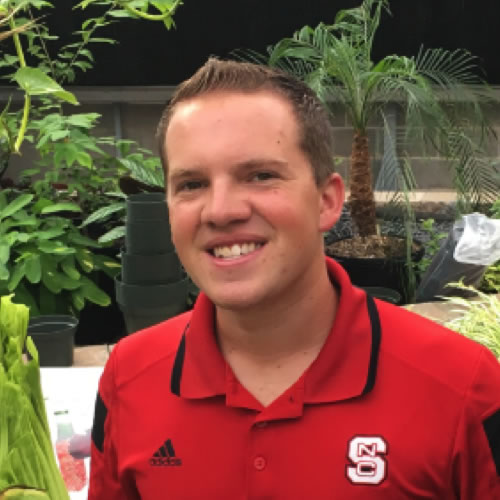Brandon Huber

Former Horticulture - PhD
Bio
- Degree Program: PhD, Horticultural Science
- Previous Degree: M.S., Horticultural Science, NC State University; B.S., Horticulture Science, Temple University
- PhD Advisor: Ricardo Hernandez
- Dissertation: Environmental Strategies to Improve the Growth and Morphology of Tomato and Cucurbit Seedlings in Indoor Propagation Systems: Carbon Dioxide Enrichment, Light Intensity, and Far-red Lighting.
- Dissertation Date:
- MS Advisor: Dr. Todd Wehner
- Thesis: Studies on Stevia (Stevia rebaudiana)
- Thesis Date: 2017-06-20
- Completion Date: Spring 2017
Research
Breeding of Stevia rebaudiana, a native perennial to Paraguay has important sweetening characteristics with compounds as high as 300 times sweeter than sucrose. Stevia contains zero calories and has no glycemic index, making it very safe for diabetics. Stevia will be an important crop of the future due to its benefits as a sugar substitute and no known negative effects to consumers. Currently, Stevia is an undeveloped crop with limited varieties available for planting. There is high phenotypic diversity found in the crop when grown from seed such as plant height and width, which makes it difficult to implement into commercial cropping systems. Stevia also is known to have an associated bitterness to its taste which makes it undesirable to consumers. This bitterness can be improved by breeding. My research focuses on evaluating current Stevia varieties for components of yield and sweetness levels known as glycosides. With this data we can then breed to improve these collective traits of interest and develop a variety that would suit the industry. A variety with high yields and high sweetness levels with no bitterness is desirable for Stevia to become a successful crop.